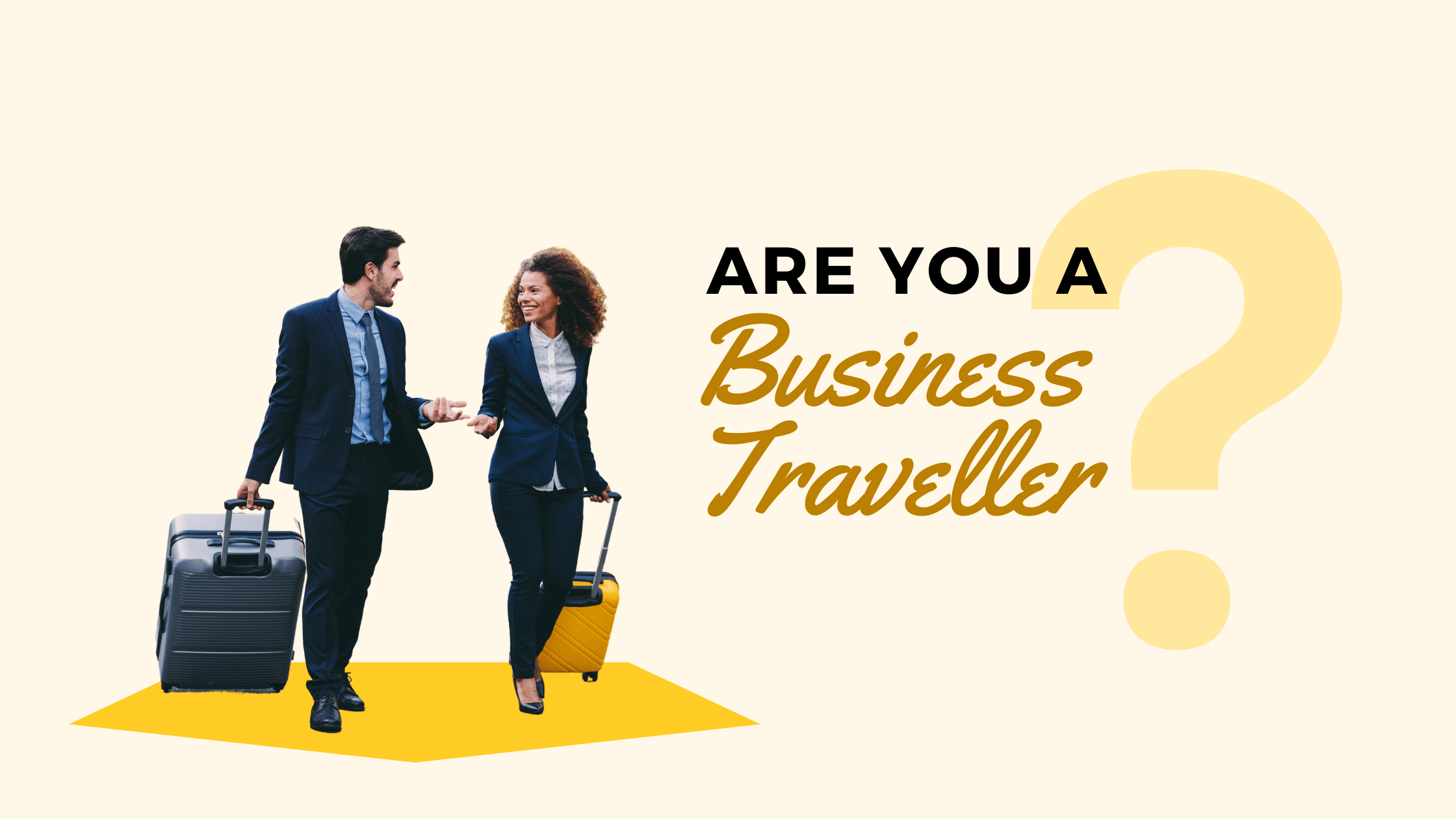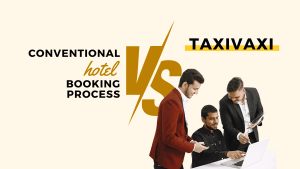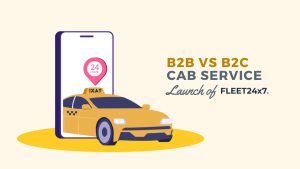Although the term “business traveller” may sound simple, there is more depth to it than meets the eye. Is it just about flying first class and attending business meetings, or is there a wider context? This article will provide as many answers as possible to the question, “Who is a business traveller?”
To get a complete picture, we’ll cover every aspect, from basic explanations to the latest trends.
This article is aimed at travel managers, HRs, travel policy creators, or decision makers of any company or SME who feel there is a need to define “business traveller” for their company’s paperwork, policies, and compliance creation.
Basic Definition of Business Traveller
Simply put, a business traveller is someone who takes trips for professional rather than leisure reasons. Whether it’s to attend a conference, meet with clients, or even take on long-term assignments in a different city, the purpose is unavoidably business-related.
But is it that simple? Why is it necessary to clearly define a “business traveller” for your company?
Why is defining business traveller important?
The importance of having a precise definition extends beyond mere semantics. There are many reasons why it’s crucial to know exactly who is considered a “business traveller.”
Policy Compliance
It is much easier to enforce company travel policies if employees know who is considered a business traveller. What does it mean?
Companies usually have different rules for each type of employees. When you clearly define who in the company is classified as a business traveller, then you can make sure that they follow certain rules that are unique to this category. Hence, it helps in ensuring things run smoothly and cuts down on travel risks.
Imagine a scenario where your company’s generic employee policy restricts hotel stays to a certain budget per night. For most employees, this might be sufficient, but for a business traveller who might need to entertain clients or have more equipment, a budget hotel might not suffice. If you define and recognise the employee as a business traveller, you can design a different, more flexible policy for them.
Expense Management
It helps businesses better classify and control travel costs. From approval workflows to reimbursement mechanisms, understanding this can lead to cost savings and efficient expense tracking.
Let’s say your company is using a platform like TaxiVaxi to manage its travel needs. As a travel manager, you can set different approval workflows for business travellers who frequently need last-minute changes, thereby fast-tracking their booking process without compromising on budget caps. This leads to increased efficiency.
Strategic Planning
If you can identify who your business travellers are and especially their travel patterns, Such information, along with their specific needs, can be invaluable for strategic planning. This information could have an impact on everything from hotel and airline partnerships to the creation of specialised travel insurance plans.
Let’s take an example here. You’ve noticed that many of your business travellers frequently visit one specific city. Long-term travel and accommodation costs can be reduced by using this information to bargain for group discounts from local hotels or by considering setting up a small satellite office in the city. Knowing your business travellers’ demographics is essential to developing this strategy.
Types of Business Travellers
Business travellers are often defined by their roles or the frequency with which they travel. Here, let’s categorise them according to their frequency:
Frequent Business Travellers:
These are individuals who are almost always on the move, such as salespeople and consultants.
Occasional Business Travellers:
People like IT experts or human resources professionals, who might only travel for specific events or tasks.
Role of Occupation in Business Travel
Certain professions are inherently more inclined to require travel. For example:
- Salespeople often have territories that require regular visits.
- Consultants may need to be on-site with a client for extended periods.
- Journalists and reporters frequently travel for stories.
Understanding these roles can help companies adapt their travel policies to fit the unique needs of each occupation.
Impact of Technology on Business Travel
Video conferencing and other forms of remote work seem like they would cut down on the need for business travellers to travel for work. On the other hand, the opposite has been observed. Virtual connections often lead to face-to-face meetings, which shows how important it is to talk to people in person.
Expense and Compliance
It’s easier to manage expenses and ensure compliance when you have a clear definition of a business traveller. Issues often arise when:
- Employees use personal accounts for booking travel, leading to complications in claiming input tax credits (ITC) under Indian GST law.
- Travellers who aren’t classified correctly can lead to non-compliant activities, affecting the company’s bottom line.
Company Policies and Business Travellers
The categorization of a business traveller can significantly affect the company’s travel policies. For example, a frequent traveller might have different allowances and approval processes compared to an occasional traveller.
Global Differences
Different countries might have varied definitions or guidelines about who constitutes a business traveller. In the European Union, for instance, specific visa categories are tailored for business travellers, distinct from leisure tourists.
Future Trends
As the nature of work continues to evolve, so will the definition of a business traveller. Remote working trends and an increasingly globalised workforce will create new categories and requirements.
Business-Combined-with-Pleasure
A new trend involves combining business trips with leisure activities, often termed “bleisure”. Does the leisure aspect of the trip take away the status of being a business traveller? Not really. As long as the primary purpose of the trip is business, the traveller will be considered a business traveller.
Remote workers and digital nomads
The rise of remote work and digital nomadism in today’s workforce has further blurred these lines. For a digital nomad who might be working from a beach in Bali, are they business travellers? Although this is still up for debate, the general consensus currently holds that if you are travelling to complete work responsibilities, it is possible that you could be considered a business traveller.
Business Travel During COVID-19
Due to the COVID-19 pandemic, there has been an increase in the number of online meetings. However, necessary business travel has continued, albeit with stricter regulations. In this context, “essential” can have a very broad or narrow meaning, depending on the context of the business. But even in this context, those who must travel for work purposes are business travellers.
Conclusion
Understanding who a business traveller is goes beyond the dictionary definition. It’s a varied job that can be affected by factors like one’s profession, how often one travels, how far along the technological curve one is, and even one’s physical location. A more strategic business approach is possible with better policy implementation and cost management when these details are known and understood.




